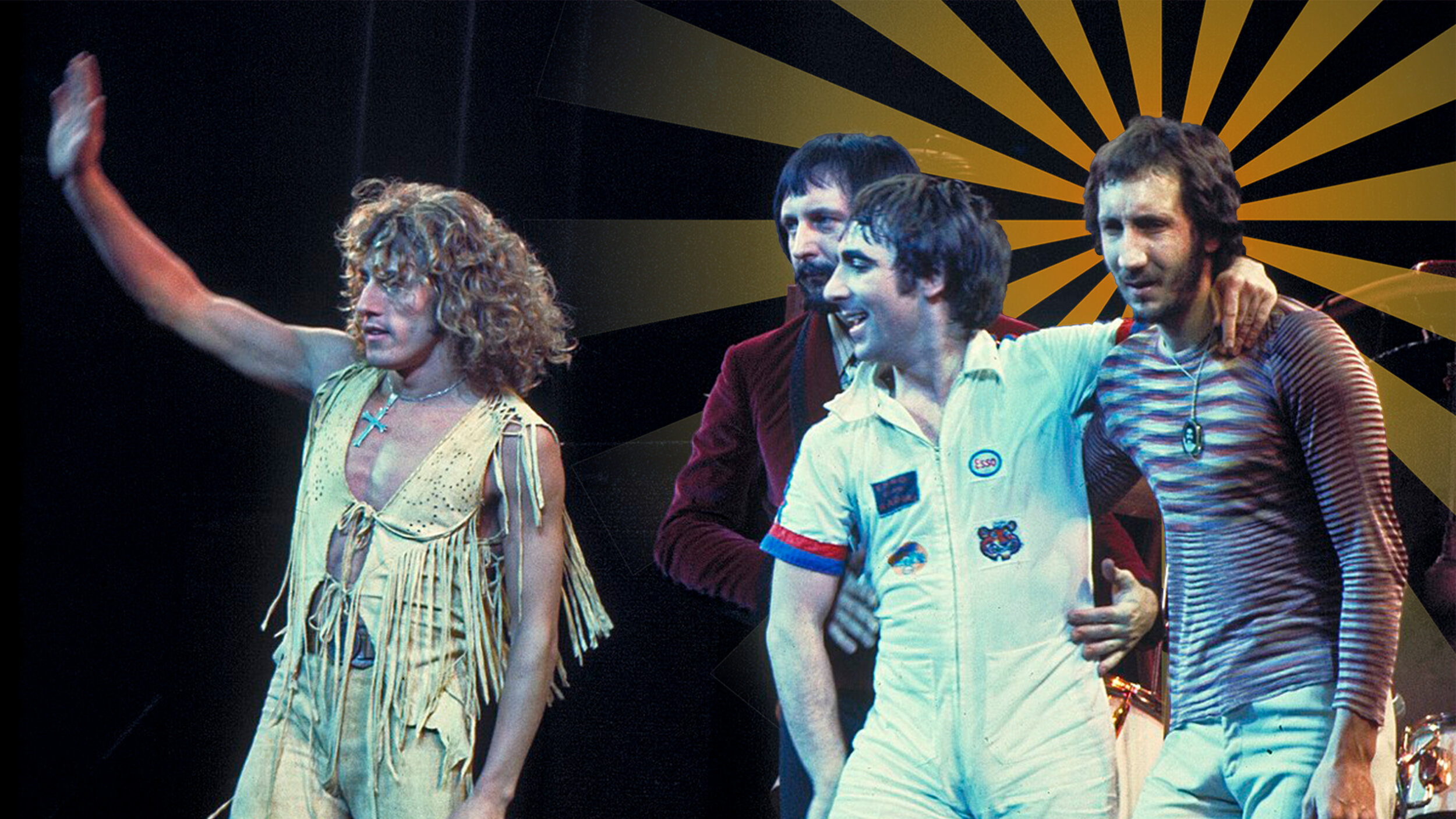Pete Townshend: Rock’s Introspective Exhibitionist
by Owen Murray
In 1980 Pete Townshend made his MTV debut by dancing around in a pool hall with his guitar, ogling at the macho men smoking cigarettes in leather jackets as they brushed off his incessant flirtation. Shockingly, even with the accompanying lyrics “Tough boys, Come over here, I want to bite and kiss you,” and more explicitly, “Gonna get inside you,” the “Rough Boys” video didn’t read as obviously gay at the time of its release.
In the video, Pete wasn’t dressed eccentrically. In fact, he looked pretty macho himself. Somehow, that was enough to make people think “I wanna get inside you” was just a no-homo kind of thing rough boys might say to each other. Townshend’s coming out as bisexual in 1989 (which he took back in an interview with Playboy 1994 only to come out again in his 2012 biography) eliminated what little ambiguity there was in the video.
While “Rough Boys” could be seen as the surprise coming out of an otherwise traditional rock star figure, Townshend’s underappreciated history of questioning and examining male gender roles as the frontman of The Who makes the song less of a shock.
As their name lets on, The Who deals with identity crises. Their thoughtful introspections throughout their entire catalog set them apart from their more ultra-masculine rock peers.
On “Tattoo” from 1967’s The Who Sell Out, Roger Daltrey sang “Me and my brother were talking to each other about what makes a man. Was it brain or brawn or the month you were born? We just didn’t understand.” Instead of giving them constructive ways to answer this fundamental question, their father berates them, saying “only women wear long hair,” leaving them with no understanding of what a man should be. The endearing lyrics, written by Townshend, show naive young boys who are well-meaning but deeply misguided. By the chorus, the two brothers decide that to affirm their manhood they need to get tattoos.
Welcome to my life, tattoo
I’m a man now, thanks to you
I expect I’ll regret you but the skin graft man won’t get you
You’ll be there when I die
Tattoo
The tuneful melody keeps the tone of the song light, but the lyrics reveal a deep-seated misunderstanding of manhood that is never resolved. All the boys have to show for it is a tattoo that they know they’ll regret. It’s a childish act, but it’s startling and revealing. If a boy might do something as silly as getting a tattoo to prove his manhood, what else might he do? And why don’t the boys have any guidance?
The Who explores these themes more thoroughly in their rock opera Quadrophenia (1973). The album pays tribute to the British gang The Mods who had been loyal fans of The Who. While it’s a loving tribute, it’s also a nuanced character portrait of the main character Jimmy, a boy who struggles with finding his own identity and uses the gang as a misguided attempt to gain a sense of belonging and fraternity.
Jimmy’s parents are stifling and judgmental, and without any productive outlet for self-expression, he joins the Mods in a justified but juvenile act of rebellion and gets caught up in a culture of amphetamines and street fights.
Unknowingly, Jimmy trades off one restrictive environment for another when he buys into the gang attitude which mandates that he wear a “zoot suit, white jacket with side vents, five inches long” (“Cut My Hair”) if he’s going out dancing and “ride a D.S. scooter” with his “hair cut neat” and a “wartime coat for the wind and sleet” (“I’ve Had Enough”) to represent his gang wherever he is.
Similar to the two brothers in “Tattoo” who are told “only women wear long hair,” Jimmy is given a fixed idea of his role and is left dissatisfied. This comes to a breaking point on “Doctor Jimmy” when a drug-addled and rampaging Jimmy screams “what is it? I’ll take it. Who is she? I’ll rape it! Got a bet there? I’ll meet it. Gettin’ high. Can’t beat it!”
Living his life, transitioning from one toxic environment to the next has turned Jimmy into a violent, belligerent, misogynistic monster. His lack of care for others is outdone only by his lack of care for himself. It isn’t clear what he has or hasn’t done by the end of his bender, but what he says is absolutely indefensible. But while there is legitimate shame for Jimmy’s actions, the greater shame lies in the closed-minded society that told him everything a boy couldn’t be while refusing to offer him the constructive guidance he so badly needed.
Jimmy is representative of an entire generation of British boys who felt lost and looked to drugs, gangs, and The Who to feel a sense of purpose. Pete Townshend responded to their idolatry with empathy and as much understanding as he could muster.
Considering his coming out much later in his career, as well as his outrageously destructive stage-antics, it seems like Townshend identified with his male fans who felt suffocated by their gender roles and acted out in immature or aggressive ways. In his solo work and his work for The Who, Townshend created a harrowing commentary on toxic masculinity while embodying many of the hyper-masculine characteristics he critiques and challenges.
Townshend isn’t often looked at as an LGBTQ icon, or even a gender-conscious figure, but his thoughtful storytelling shows an intense yearning to rebel against traditional gender roles and works towards a more accepting, inclusive, and healthy place for boys and men.

